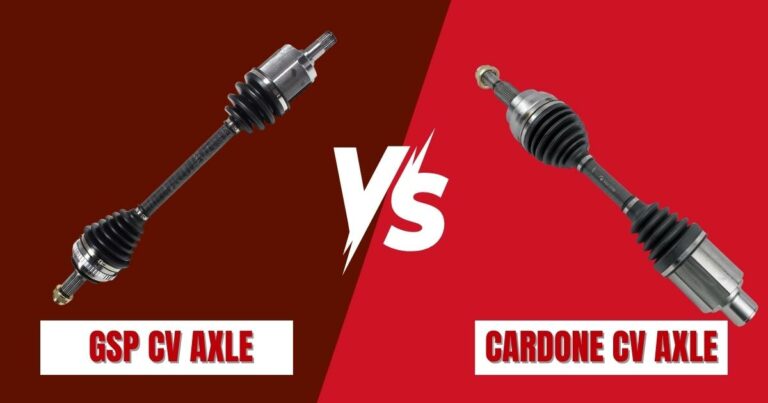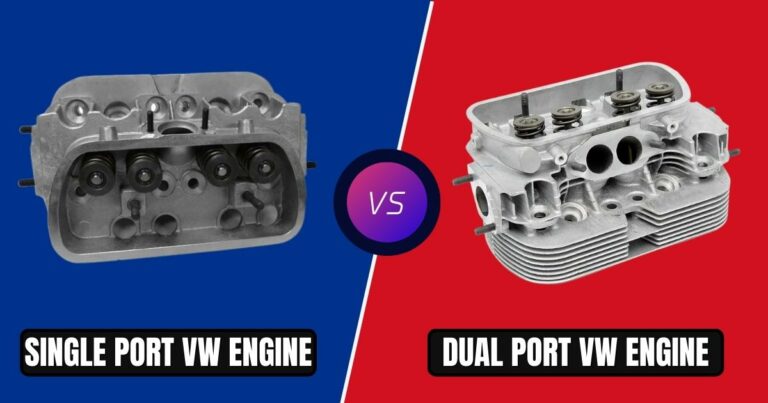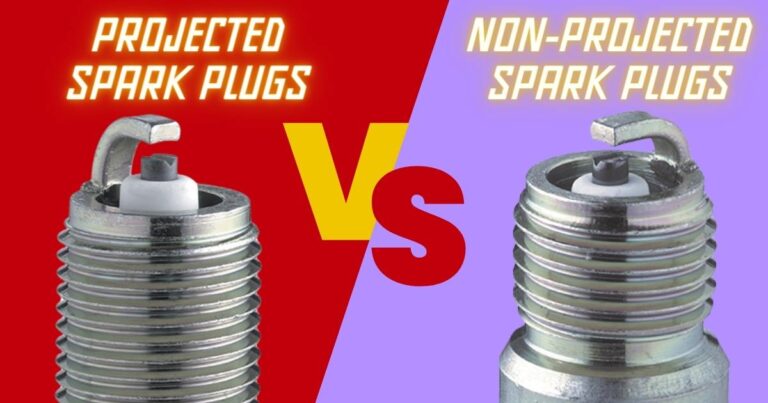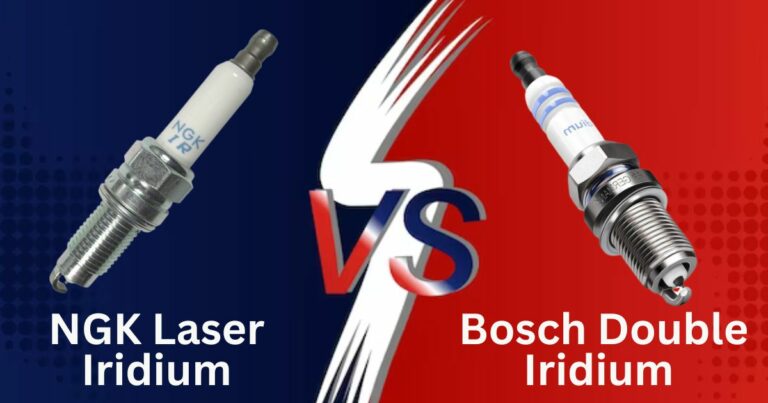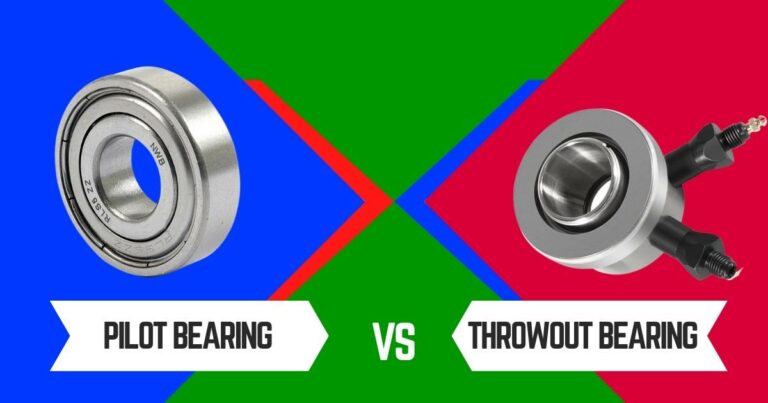Bosch vs Denso Oxygen Sensor | The Undisputed Champions
Selecting the right oxygen sensor is crucial for your car’s performance and emissions. These sensors play a critical role in optimizing the air-fuel mixture in your engine, which directly impacts fuel efficiency and emissions.
As vehicles become increasingly complex and environmentally conscious, the choice between Bosch vs Denso oxygen sensors has become a crucial decision for both automotive manufacturers and vehicle owners.
Ideally, determining which is superior requires a closer examination of their respective qualities and features. In this article, we’ll provide you with the insights and knowledge needed to choose the sensors that aligns best with your automotive needs.
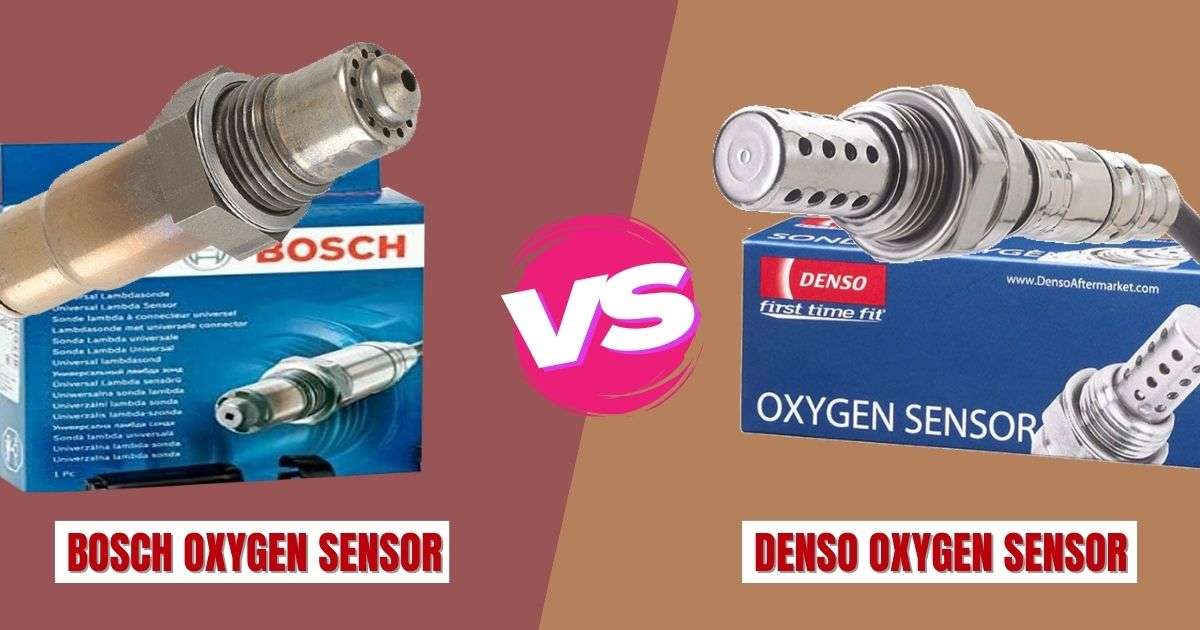
Bosch vs Denso O2 Sensor
Bosch and Denso have a long history of producing high-quality automotive components, and both brands have garnered trust among automakers and vehicle owners alike. To determine which brand is better suited for your specific needs, it’s essential to consider factors such as sensor accuracy, durability, compatibility with your vehicle’s model, and cost-effectiveness.
Without further ado, let’s get into the details!
Bosch O2 Sensor Review
Bosch is a well-respected and renowned brand in the automotive industry, and their oxygen sensors are no exception. Bosch sensors are designed to enhance the performance and environmental-friendliness of your vehicle, making them a trusted choice for those seeking reliable O2 sensors for their vehicles’ needs.
Key Highlights of Bosch 2 Sensors
Advanced Sensing Technology
Bosch employs state-of-the-art sensing technology in their O2 sensor, which ensures exceptional accuracy and reliability. Many of their sensors are equipped with wideband sensors that offer more precise and rapid readings of oxygen levels in exhaust gases. This, in turn, allows for more accurate adjustments to the air-fuel mixture, thereby optimizing engine performance and emissions.
Durability
Bosch O2 sensors are known for their longevity and robust construction. They are designed to withstand the harsh conditions within an engine’s exhaust system while ensuring reliable performance over an extended period.
Compatibility
Bosch offers a wide range of O2 sensors that are compatible with various vehicle makes and models. This versatility ensures that car owners and mechanics have access to reliable oxygen sensors that fit their specific vehicles.
Easy Installation
Bosch designs their O2 sensors with user-friendliness in mind. They often include plug-and-play connector for a straightforward installation and ensuring a seamless fit without the need for complicated wiring or modifications.
Fuel Efficiency
One of the primary functions of Bosch O2 sensors is to help optimize the air-fuel mixture. By providing accurate data to the engine control unit, the sensors assist in achieving better fuel efficiency. This not only saves on fuel costs but also reduces emissions, which contributes to a more eco-friendly driving experience.
Real-time Data
As mentioned, Bosch O2 sensors provide real-time data to the ECU, allowing for continuous adjustments to the engine’s operation. This real-time feedback loop ensures that the engine runs at its most efficient level, regardless of driving conditions.
Are Bosch O2 Sensors Good?
Bosch is one of the oldest and most established companies in the automotive industry, with a history dating back to the late 19th century. Bosch supplies O2 sensors to many original equipment manufacturers, which means that their sensors are often used in the production of new vehicles.
Bosch O2 sensors are designed to meet or exceed industry standards and are subjected to rigorous testing and quality control measures. This ensures that the sensors perform accurately and consistently. Additionally, Bosch O2 sensors are readily available in the aftermarket, making it easy for consumers to access their products.
Many automotive professionals, including mechanics and technicians, have positive experiences with Bosch O2 sensors, and their recommendations and feedback contribute to the brand’s reputation for high-quality.
Limitations
Installation and calibration- Replacing Bosch O2 sensor can sometimes be a challenging task if you don’t have the right tools and expertise. Generally, improper installation or calibration can lead to inaccurate readings and affect your vehicle’s performance and emissions.
Price- Bosch O2 sensors are often more expensive than generic or lesser-known brands. This can be a drawback for budget-conscious consumers, although the higher cost is often justified by their quality and performance.
Compatibility issues- Bosch O2 sensors are designed to fit a wide range of vehicles, but there may still be compatibility issues with certain vehicle models. As such, it’s crucial to ensure that you select the right sensor that matches your vehicle’s specifications to avoid any compatibility problems.
Denso O2 Sensor Review
Denso’s reputation for innovation and excellence in the automotive industry underscores its position as a respected provider of O2 sensors. Denso is a go-to choice for individuals and professionals seeking high-quality, dependable O2 sensors that contribute to improved engine performance, reduced emissions, and environmental sustainability. Furthermore, Denso remains committed to staying in sync with engineering advancements to fulfill the industry’s ever-changing requirements.
Key Highlights of Denso O2 Sensors
Precise Sensing
Denso’s O2 sensors stand out for their exceptional precision in measuring oxygen levels in exhaust gases. The company leverages cutting-edge components and engineering techniques to deliver highly accurate data. This precision is paramount in achieving optimal air-fuel mixture ratios, thereby enhancing engine performance and efficiency.
Corrosion-Resistant Construction
Denso O2 sensors are built with a durable stainless steel construction that is highly resistant to corrosion. This design choice is particularly important because O2 sensors are exposed to harsh and often corrosive environments. This helps ensure they can withstand the rigors of various driving environments, including those with high humidity, road salt, or other corrosive elements.
Contaminant Blocking
These sensors are equipped with a PTFE (Polytetrafluoroethylene) filter that effectively blocks contaminants. This filter serves as a protective barrier by effectively blocking contaminants such as dust, dirt, and other particles from infiltrating the sensor’s sensitive components. By doing so, it prevents these contaminants from interfering with the sensor’s operation.
Refined Zirconia Element
Denso O2 sensors feature a refined zirconia element, which is designed to enhance the sensor’s response time. This, in turn, allows it to provide more rapid and accurate measurements of oxygen levels in the exhaust gases. The rapid responsiveness contributes to improved fuel efficiency and reduced emissions, which aligns with both environmental concerns and the pursuit of enhanced engine performance.
Wide Compatibility Range
Denso offers a diverse selection of O2 sensors designed to work with a wide variety of vehicle models, encompassing both commercial and non-commercial vehicles. This helps simplify the selection process while ensuring that consumers can find a sensor tailored to their specific automotive needs.
Are Denso O2 Sensors Good?
Denso O2 sensors are generally considered to be good and reliable. These sensors are well-regarded for their accuracy and performance in measuring the oxygen content in exhaust gases, which is crucial for optimizing the air-fuel mixture and engine performance.
Denso is known for its commitment to consistent quality across its product range. They typically adhere to strict quality control measures during the manufacturing process to ensure that their O2 sensors consistently meet or exceed industry standards.
That’s not all. Denso O2 sensors are widely used as original equipment in many vehicles and are readily available, making them a trusted choice among mechanics, automotive professionals, and vehicle owners.
Limitations
Installation challenges- Much like their Bosch counterparts, replacing Denso sensors can be a complex task for DIY enthusiasts and even some mechanics. However, the company provides detailed installation guides and customer support to assist individuals in replacing their O2 sensors.
Degradation over time- O2 sensors are subject to wear and tear, and their performance can degrade over time. Luckily, regular maintenance and replacement can help mitigate these issues.
Denso vs Bosch O2 Sensor- Which is Superior?
Both Bosch and Denso offer quality O2 sensors, but Denso distinguishes itself with superior construction and a broader range of features. So, if you prioritize outstanding performance and have specific sensor requirements, Denso’s sensors may be the better choice for your vehicle.
On the other hand, Bosch O2 sensors are often a budget-friendly option, suitable for a variety of applications. Bosch offers a range of sensor models, including more affordable options, making it accessible to a wide range of car owners. This makes Bosch O2 sensors an attractive choice for those looking to replace or upgrade their sensors without breaking the bank.
When comparing Bosch and Denso O2 sensors in terms of construction, the former feature a double laser-welded stainless steel housing, designed to withstand the rigors of the engine compartment and resist engine contaminants. This construction emphasizes durability and resistance to harsh conditions.
In contrast, Denso sensors use a ceramic element in their construction, which is also intended to withstand the challenging environment of the engine compartment. The ceramic element is chosen for its ability to handle high temperatures and contaminants, albeit with potentially slightly less robustness than stainless steel.
Ideally, both brands offer excellent accuracy and long service life, which are critical aspects for O2 sensors. However, Denso’s superior design stands tall, making its sensors more reliable in the long run. The sensors are engineered to handle a wide range of temperatures and contaminants commonly found in the engine compartment.
Also Read: When VSA Light Signals Trouble: Car Jerks Acceleration Woes
Furthermore, Denso offers a greater variety of options when it comes to O2 sensors. They provide specialized sensors like heated up-stream and narrowband oxygen sensors. These options cater to specific vehicle needs and performance requirements, which enhances their versatility.
So, when it comes to choosing the best oxygen sensors for your vehicle, Denso stands out as a top-quality and reliable choice. That said, Bosch also remains a reliable and dependable solution for discerning vehicle owners.

